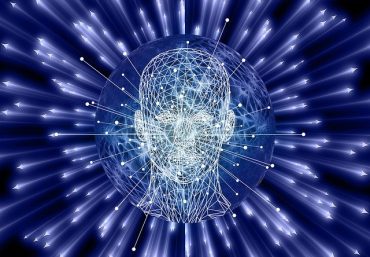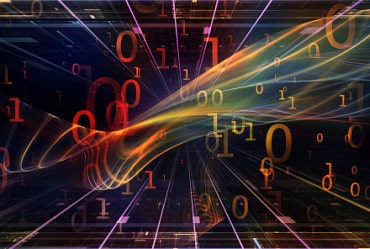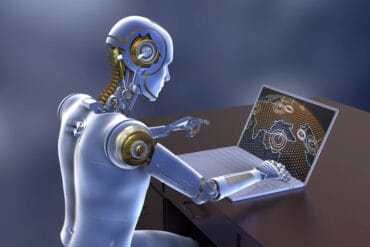
The future of AI in America is both promising and complex. Regulations, transparency, and a collective commitment to ethical accountability are key to ensuring that we realize our vision of a bright future.
We live in a fascinating era in which artificial intelligence (AI) is poised to redefine the contours of the global economy and society. America is positioning itself at the forefront of this innovation, and we must proactively prepare for the impacts it will bring to a wide array of industries.
AI and future employment
Just the mention of AI stirs a pot of excitement and apprehension regarding the future of work. AI is already shaking up our employment sector, and it doesn’t take an expert to predict that more upheaval is on the way.
Yes, AI can automate mundane, repetitive tasks, which will undoubtedly lead to the displacement of certain job roles. Reports have forecasted that up to 47% of current jobs in the US could be at risk of automation over the next 20 years.
However, it’s a bit premature to sound the death knell for human labor. If we look at history and present trends, AI’s disruption is more of an evolution than an extinction. While some jobs will be redefined or rendered obsolete, brand new opportunities will emerge, demanding unique skill sets ready for a high-tech world.
This transformation isn’t about machines taking over. It’s about humanity rising to more sophisticated and intellectually stimulating roles, with AI developers, system maintainers, and specialists collaborating to ensure the ethical deployment of AI technologies.
AI’s impact brings far more change to industries than shifts in employment. Organizations that seamlessly integrate AI into their workflow will achieve unparalleled efficiencies, lower operational costs, and pioneering innovations. This advancement is revolutionary economics at play. By 2030, it’s estimated that AI could inject a staggering $15.7 trillion into the global economy, and the United States is poised to secure a significant share of these spoils.
See also: The Beneficial Impact of AI in Public Services
Artificial intelligence, job creation, and the economy
AI in healthcare is nothing short of revolutionary. Artificial intelligence can detect patterns that elude even the best human practitioners by analyzing vast datasets. Certain systems are already setting new benchmarks in early disease detection and personalized treatment plans.
In manufacturing, AI monitors factory environments to enhance safety and efficiency and offers predictive maintenance that anticipates equipment failures to prevent costly delays and repairs. Similarly, in entertainment, machine learning tailors content for a personalized experience on streaming platforms. In all forms of entertainment, AI-generated content is expanding the realms of creativity.
AI applications in retail help enhance safety, monitor theft, and analyze foot traffic to optimize store layouts. Additionally, the personalized recommendations it provides can elevate customer experiences.
In transportation and logistics, AI’s capabilities are optimizing supply chains, real-time asset tracking, and autonomous deliveries, making them faster, safer, and more cost-effective. In hospitality and tourism, AI ensures improved security and unrivaled guest experiences by adding real-time feedback systems and AI-driven marketing insights for more tailored and responsive services.
AI also enhances security and crowd control in event management, ensuring smooth operations and quick incident responses. Machine learning optimizes an event’s resource allocation, enhancing participant experiences and event success.
For agriculture, AI allows for real-time monitoring of environmental conditions, machinery, and livestock, leading to increased yields and operational efficiency. AI’s impact on environmental monitoring is profound. It provides real-time data on air quality, noise levels, and pollution, providing actionable data that facilitates proactive measures that enhance public health and compliance.
Furthermore, AI propels smart city initiatives forward through intelligent insights to improve urban living through better traffic management, public safety monitoring, and environmental assessments. Similarly, in construction, AI ensures site safety and productivity by monitoring compliance with safety regulations and maximizing equipment efficiency, drastically reducing delays and costs.
Lastly, AI revolutionizes insurance through real-time risk assessment and fraud detection. This creates a sector that is more reliable with improved premiums and faster claims processing.
Securing the future of AI with ethical considerations, transparency, and regulation
The future of AI in America promises years of momentous innovations across all sectors. However, as technology evolves, we cannot ignore the array of ethical considerations and regulatory challenges that accompany these developments. Balancing innovation with responsibility remains one of the future’s most significant hurdles.
As we race to push the boundaries of artificial intelligence, we often find ourselves at a crossroads. Our innovation drives remarkable advancements and opens new possibilities across industries. Yet, we risk dire consequences if we neglect to limit ourselves with guardrails on this innovation.
To achieve a balance between innovation and responsibility, we must prioritize transparency and accountability. When we are completely open, we design systems that are explainable and rigorously tested for potential misuse.
Our steps to demystify AI transform it from an enigmatic black box into a tool that users can question and understand. We empower people with knowledge about AI’s workings, limitations, and risks.
Accountability to strict regulations ensures that AI development will align with societal values and ethical standards to prevent a “Wild West” scenario where innovation outpaces risk management, driving competition toward transparency and ethical innovation. Regulation is vitally important in areas like healthcare, finance, and governance, where errors can have significant repercussions.
With transparency and accountability, we can innovate responsibly, focusing on artificial intelligence that aligns with human values, respects user rights, and avoids causing harm. While trade-offs between innovation and caution will always exist, building a culture of ethical responsibility ensures the creation of groundbreaking and trustworthy systems.
We are all responsible for creating a future that honors AI’s ethical operation and development. As developers, policymakers, and users, we must advocate for policies that promote ethical AI, demand transparency from companies about their algorithms, and be aware of how we engage with AI technology.
Ethical considerations are not barriers to progress but the foundation for sustainable innovation. By proactively confronting risks in AI systems, we shape a future where technology serves humanity rather than dictating its terms.
The future of AI in America is both promising and complex. Regulations, transparency, and a collective commitment to ethical accountability are key to ensuring that we realize our vision of a bright future.
With all the talk about changes to come, we must remember that AI isn’t just shaping the future of America — it’s here, transforming industries before our eyes. As we code the future, the possibilities require only ethical restraint and collective imagination.






























